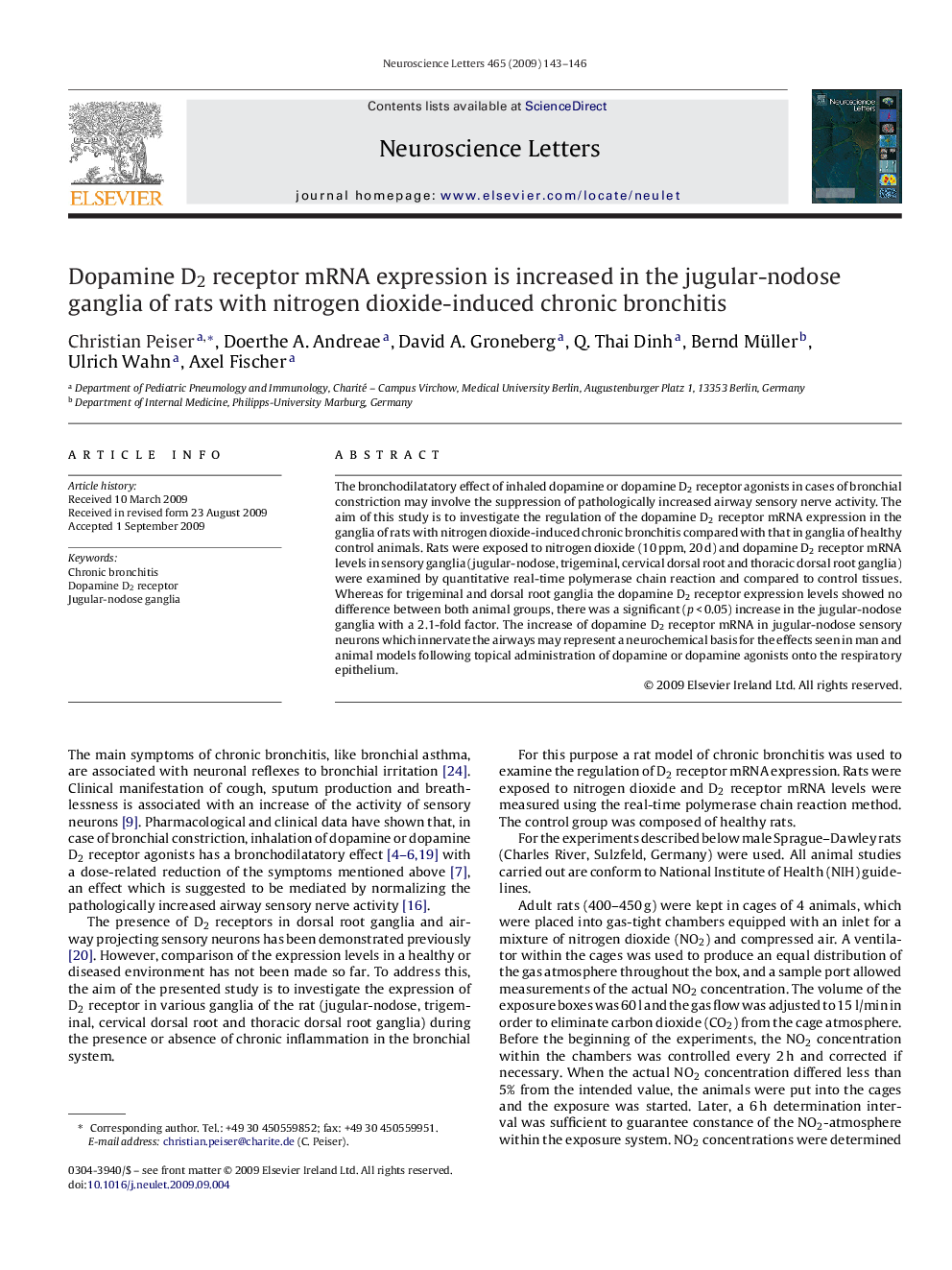| Article ID | Journal | Published Year | Pages | File Type |
|---|---|---|---|---|
| 4346672 | Neuroscience Letters | 2009 | 4 Pages |
Abstract
The bronchodilatatory effect of inhaled dopamine or dopamine D2 receptor agonists in cases of bronchial constriction may involve the suppression of pathologically increased airway sensory nerve activity. The aim of this study is to investigate the regulation of the dopamine D2 receptor mRNA expression in the ganglia of rats with nitrogen dioxide-induced chronic bronchitis compared with that in ganglia of healthy control animals. Rats were exposed to nitrogen dioxide (10 ppm, 20 d) and dopamine D2 receptor mRNA levels in sensory ganglia (jugular-nodose, trigeminal, cervical dorsal root and thoracic dorsal root ganglia) were examined by quantitative real-time polymerase chain reaction and compared to control tissues. Whereas for trigeminal and dorsal root ganglia the dopamine D2 receptor expression levels showed no difference between both animal groups, there was a significant (p < 0.05) increase in the jugular-nodose ganglia with a 2.1-fold factor. The increase of dopamine D2 receptor mRNA in jugular-nodose sensory neurons which innervate the airways may represent a neurochemical basis for the effects seen in man and animal models following topical administration of dopamine or dopamine agonists onto the respiratory epithelium.
Related Topics
Life Sciences
Neuroscience
Neuroscience (General)
Authors
Christian Peiser, Doerthe A. Andreae, David A. Groneberg, Q. Thai Dinh, Bernd Müller, Ulrich Wahn, Axel Fischer,
